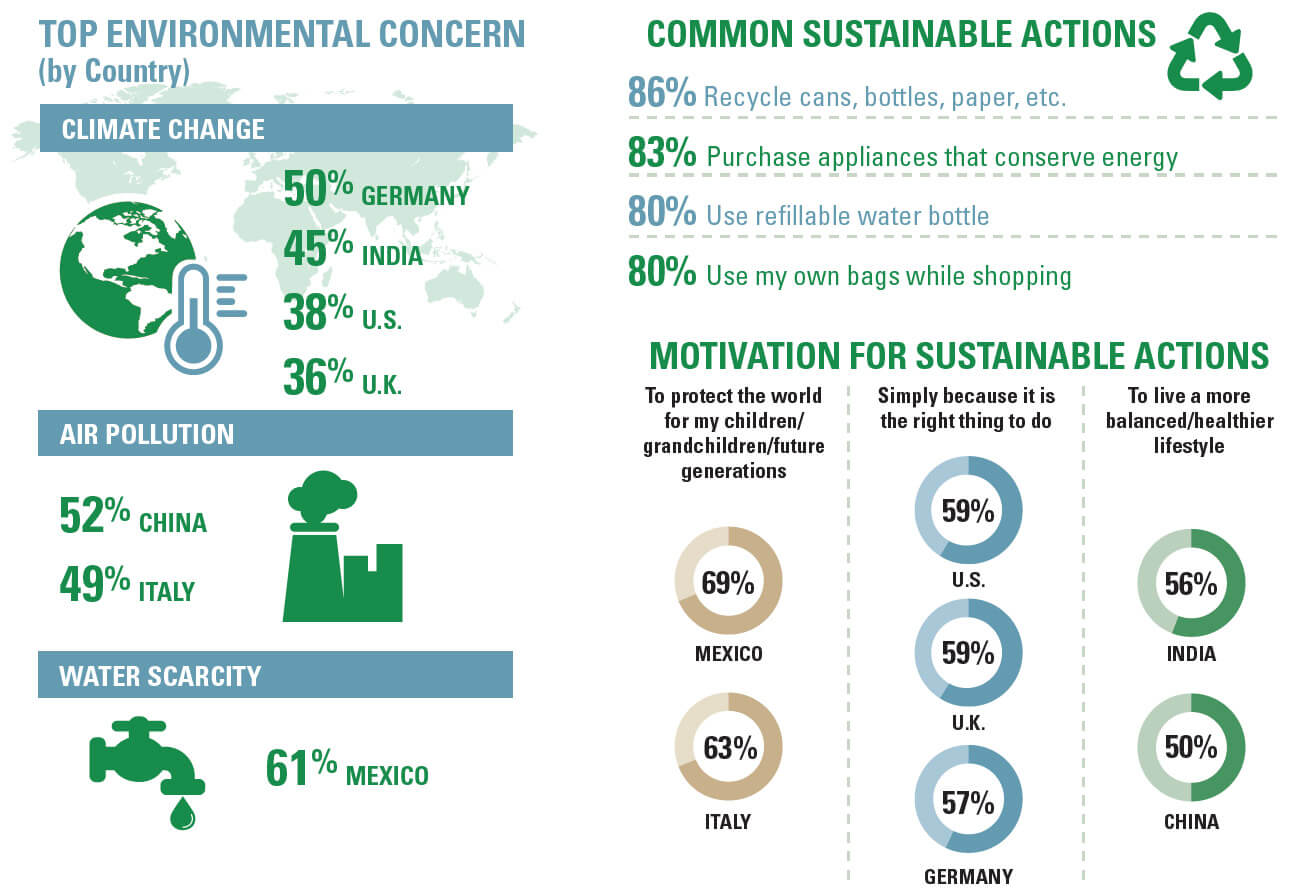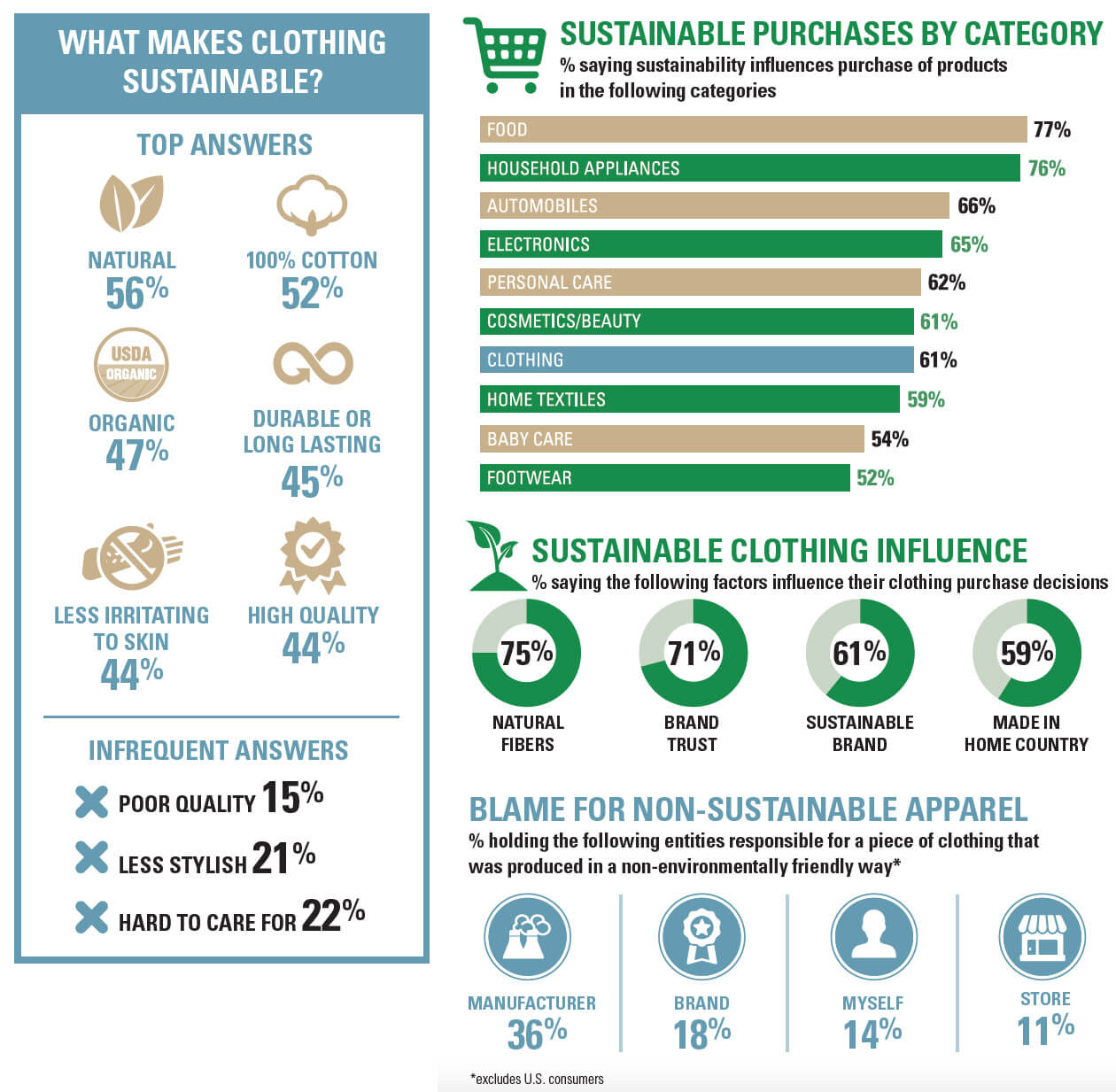Global concern for environmental change is high, with 86% of consumers saying sustainability concerns are very real and require a change in our behaviors. Concern for the environment translates into action as 95% of consumers engage in sustainable practices and purchasing behaviors, such as recycling and seeking out sustainable food, appliances, and clothing. Brands can stand out by connecting with consumers’ desire to “do the right thing” through protecting the environment with natural product offerings.
KEY INSIGHTS
- Consumers regularly engage in sustainable practices that are convenient, including their purchase behavior. Brands who can connect with consumers’ interest in natural products can set themselves apart while still meeting traditional purchase drivers.
- Marketers may promote cotton products in line with consumer motivations to “do the right thing” or “live a balanced lifestyle.”
- Consumers trust brands to produce sustainable clothing and see natural fibers as the clearest sign of an item’s sustainability.

Concern for sustainability influences over three-quarters of consumers when they shop for food and household appliances, and 61% say it influences their clothing purchases. Consumers connect the ideas of sustainability and naturalness, particularly when it comes to clothing, seeking items made of natural fibers. Brand trust and image influence consumers’ sustainable clothing choices and 66% say they blame manufacturers, brands, or stores when clothing is not sustainably produced.
